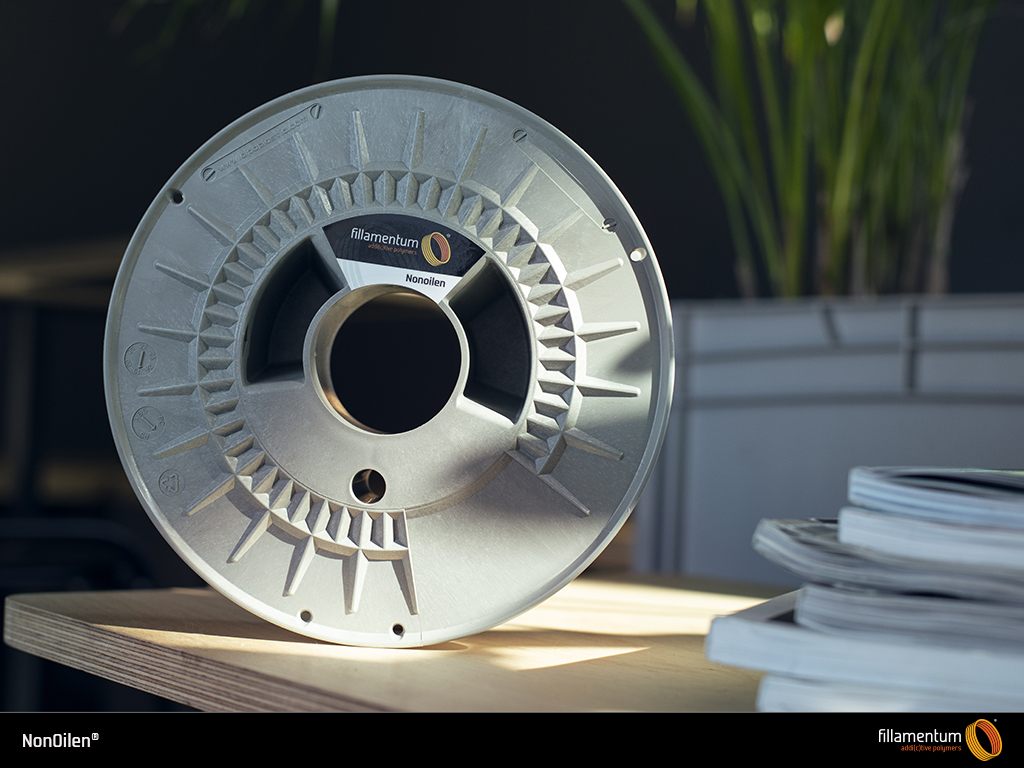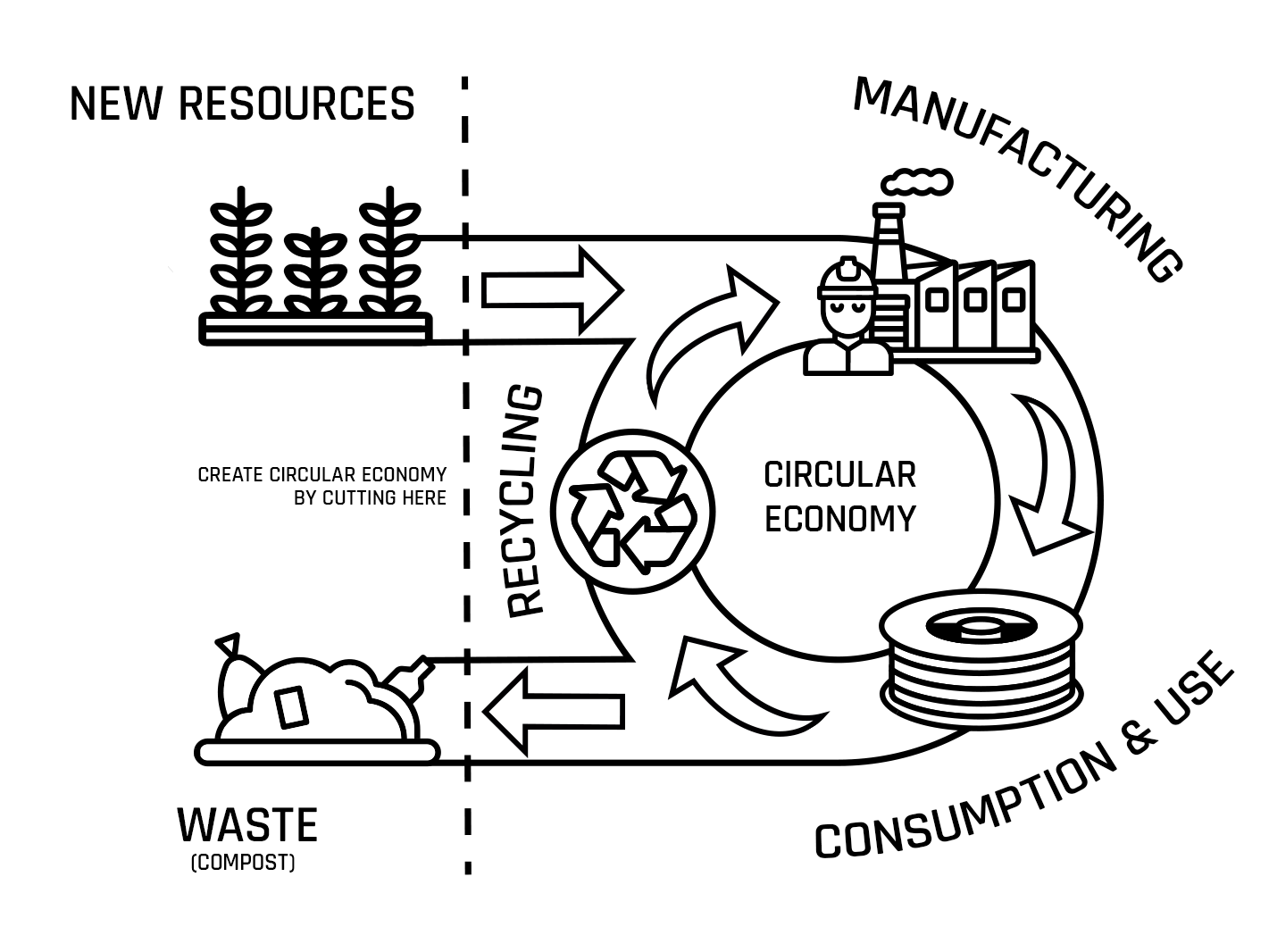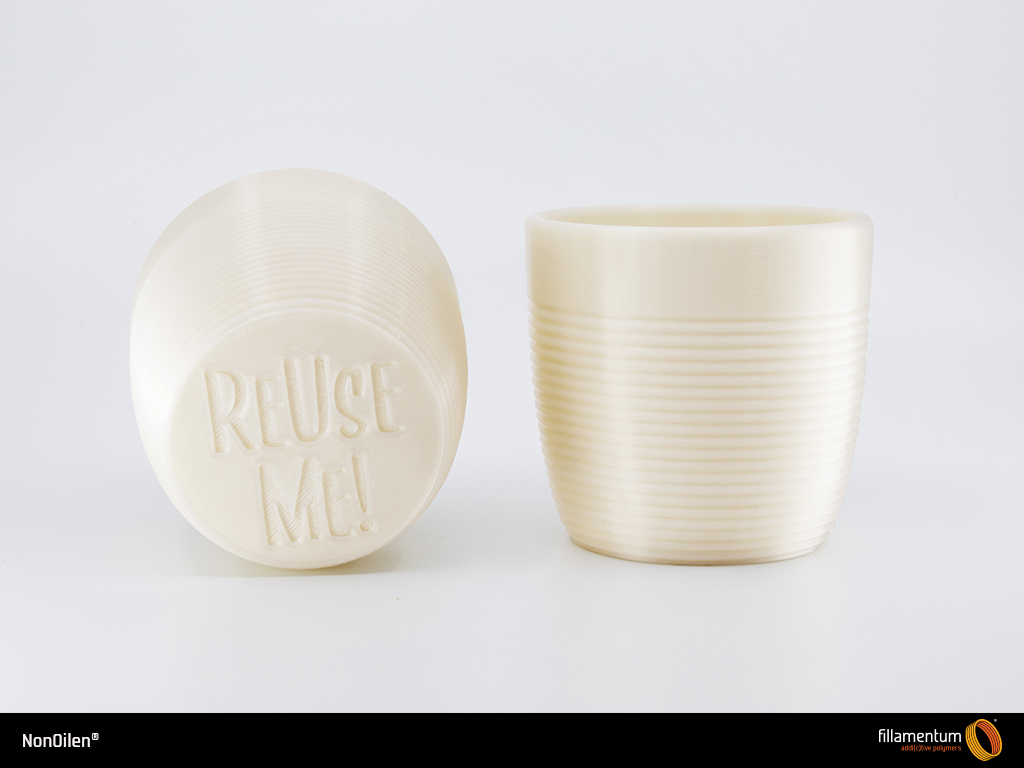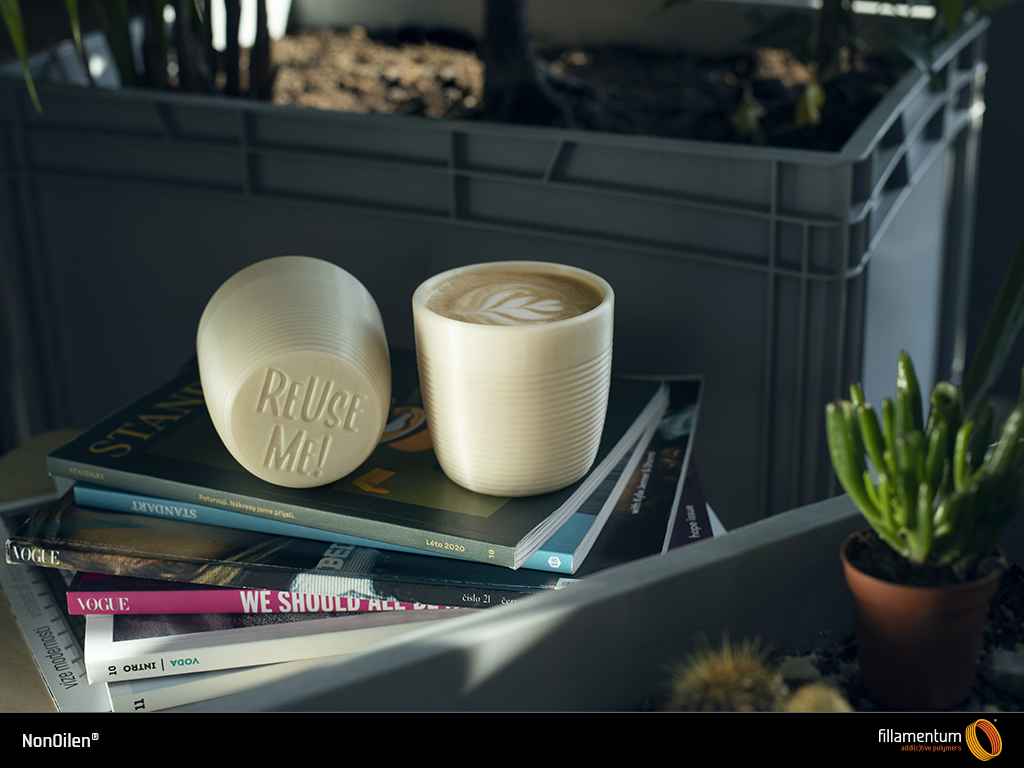Czech 3D printing filament producer Fillamentum has launched its first 100 percent biodegradable filament for 3D printing, NonOilen.
The biobased filament is made from a blend of polylactic acid (PLA) and polyhydroxy butyrate (PHB) to yield improved toughness and temperature-resistant properties. It can be reused time and again to adhere to the principles of a circular economy.
Once an object printed with NonOilen reaches the end of its lifecycle, it can be fully degraded to biomass, water, and carbon dioxide (CO2) in compost or food waste disposal or sent back to Fillamentum for recycling. The company has also joined the DHL GoGreen program to neutralize its carbon footprint with each NonOilen parcel sent via the delivery service.
According to the company, the driving force behind creating NonOilen was to reduce the use of fossil resources, such as oil, to make its 3D printable filaments and reduce the firm’s environmental footprint on the planet.

Developing a fully biobased and biodegradable filament
Previous attempts to improve the biodegradability of plastics include the creation of oxo-bioplastics, where standard polymers were modified by adding substances that cause degradation in the presence of oxygen. However, these oxo-bioplastics can not be sufficiently degraded in compost as secondary microplastics, created as the plastic decays, can have harmful effects on the surrounding environment, such as soil or oceans.
To solve this problem, Fillamentum states that new ways to degrade such polymers need to be discovered, in addition to finding new sources to replace fossil resources in creating biodegradable polymers with high-value use and improvements in waste handling.
To this end, the company’s latest 3D printing filament, NonOilen, has emerged out of a long-term partnership with the research team of Professor Pavol Alexy from the Slovak Technical University in Bratislava, Slovakia. The filament is 100 percent biodegradable and all polymers used in its production are fully biobased.
Once an object reaches the end of its lifetime, it can be placed in industrial or home food waste composters where degradation takes place around three times faster than standard PLA. The PHB in NonOilen acts as an initiator for the breakdown process, allowing bacteria to depolymerize and metabolize the polymer quicker.
Alternatively, if sent back to Fillamentum the material will be recycled and reused several more times while retaining its mechanical properties.

Mechanical properties of NonOilen
In addition to its biodegradable credentials, NonOilen also possesses improved toughness, hardness, and strength properties when compared to standard PLA, as a result of its PHB content.
One of the main advantages of the filament is its temperature resistance up to 110 degrees celsius after 3D printing, meaning there is no need for annealing. NonOilen is easily printed, reportedly comparable to the ease of printing with standard PLA, with parts featuring a smooth surface with a natural silk look that is translucent when printed in a thin layer.
Objects printed with NonOilen showcase long-term durability and are safe for food contact applications. The filament can also be used for the production of 3D printed electrical components and electronic equipment.
According to Fillamentum, NonOilen can retain its mechanical properties even after being recycled “many times”, an improvement on the firm’s other biodegradable filaments PLA Extrafill and PLA Crystal Clear, which both experience at least some loss of mechanical properties when recycled. What’s more, the material performs significantly better than the firm’s Timberfill filament which, while biodegradable, cannot be recycled.
NonOilen also has a substantially higher temperature resistance than the company’s other biodegradable filaments and boasts a considerably shorter biodegrading timeframe.

“Green prototyping” of NonOilen by Fremach
Fremach, a global supplier of complex plastic components to the automotive market, has tested Fillamentum’s NonOilen filament in the production of control gauges and gears. The firm chose the material for its ability to resist high temperatures and for its complete recyclability, which is a welcome benefit when printing large numbers of these components.
The gauges are used to check the positions of symbols on decorative parts, which then go unused once their purpose has been served. The recyclability of NonOilen is therefore a huge benefit to the company and enables Fremach to significantly reduce waste. The 3D printed gears form part of a rotating system for painting cylindrical parts, and here Fremach hails the filament’s ability to resist the high temperatures that the gears are exposed to in the pant shop furnace without deforming.
“The benefits of 3D printing are obvious and are increasingly important to our business,” said Miroslava Pribylova, Process Engineer for Fremach. “Furthermore, Fillamentum’s ecological thinking motivates us to take our own steps closer to nature.”
In cooperation with Fillamentum, Fremach will regularly collect and recycle unused parts made of NonOilen materials for use in its own production. As of today, Fillamentum is available for purchase and shipping.

Subscribe to the 3D Printing Industry newsletter for the latest news in additive manufacturing. You can also stay connected by following us on Twitter and liking us on Facebook.
Looking for a career in additive manufacturing? Visit 3D Printing Jobs for a selection of roles in the industry.
Featured image shows Fillamentum NonOilen filament is biobased and fully biodegradable. Photo via Fillamentum.



